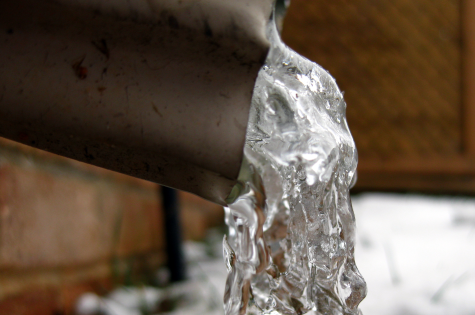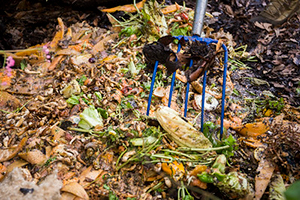Winterizing the Garden Tools

As we hang up our gardening tools for the year, it is essential to take care of them so they last for years. Good tools and equipment are expensive, but a few minutes of work this fall can pay off big time in the future. As we put the garden to bed for the winter, take a few minutes to work on your tools so you are ready for the next growing season.
Garden tools such as shovels, hoes, and rakes often have wooden handles that will slowly deteriorate due to exposure to sunlight, moisture, and other elements. This can easily lead to rough patches and splinters from our favorite tools. Keeping them stored inside when possible will slow this process; however, over time, the tools will still have some natural wear and tear. Take some time this winter to check the handles for splinters and sand down rough areas, and then apply a protective coat (linseed oil, wood preservative, polyurethane, etc.) to the handle to keep it protected. Don’t forget about the metal part of the tool; make sure it’s clean of dirt and debris, and apply a light amount of oil to prevent rust.
October is also necessary to service any watering systems you might have. Over my years in North Dakota, I had several issues with mice chewing on my soaker hoses throughout the winter and searching for water when it was scarce. I’ve always made sure to drain my soaker hoses in the winter and store them inside for the winter. It is also important to have your irrigation system drained or have a company blow the water out of the system to reduce the chances the system would break due to freezing water or friendly little furry creatures looking for water. When we water the yard or landscape for the last time this fall, ensure your garden hose is drained and stored for the winter. This step should be done before a hard freeze to protect the hose and your faucet, and store your hose in an area out of direct sunlight to prolong its life.
Dakota, I had several issues with mice chewing on my soaker hoses throughout the winter and searching for water when it was scarce. I’ve always made sure to drain my soaker hoses in the winter and store them inside for the winter. It is also important to have your irrigation system drained or have a company blow the water out of the system to reduce the chances the system would break due to freezing water or friendly little furry creatures looking for water. When we water the yard or landscape for the last time this fall, ensure your garden hose is drained and stored for the winter. This step should be done before a hard freeze to protect the hose and your faucet, and store your hose in an area out of direct sunlight to prolong its life.

Have questions? Contact our office where our Horticulture Extension Agent will assist you with questions.
Phone: (316) 321-9660
Email: callae@ksu.edu